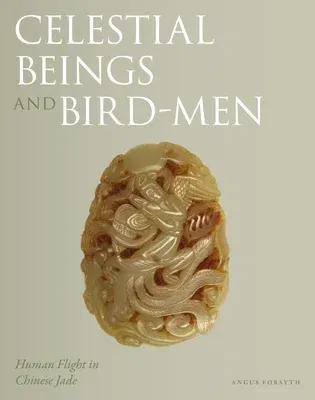Angus Forsyth
(Author)Celestial Beings and Bird-Men: Human Flight in Chinese JadeHardcover, 22 December 2020

Qty
1
Turbo
Ships in 2 - 3 days
Only 2 left
Free Delivery
Cash on Delivery
15 Days
Free Returns
Secure Checkout

Print Length
336 pages
Language
English
Publisher
Philip Wilson Publishers
Date Published
22 Dec 2020
ISBN-10
1781300712
ISBN-13
9781781300718
Description
Product Details
Author:
Book Format:
Hardcover
Country of Origin:
US
Date Published:
22 December 2020
Dimensions:
24.89 x
19.81 x
2.79 cm
ISBN-10:
1781300712
ISBN-13:
9781781300718
Language:
English
Location:
New York
Pages:
336
Publisher:
Weight:
1496.85 gm